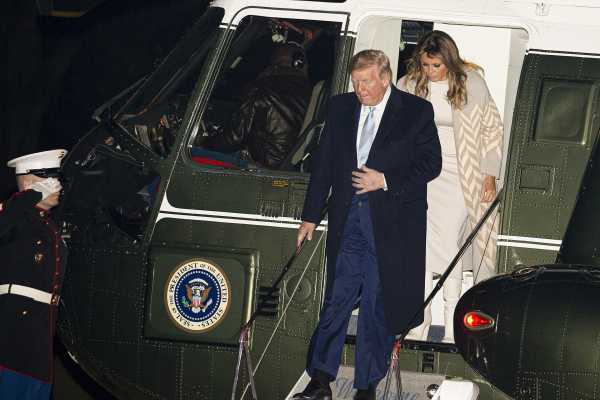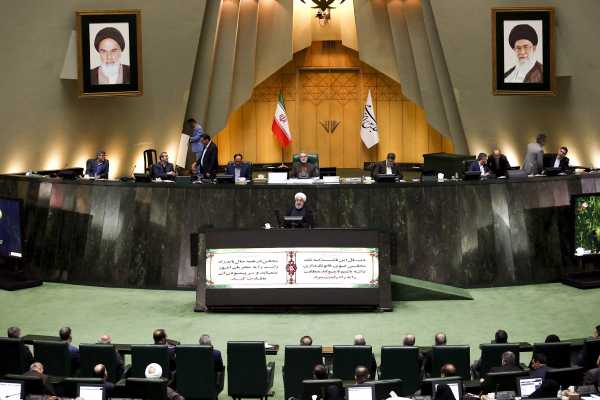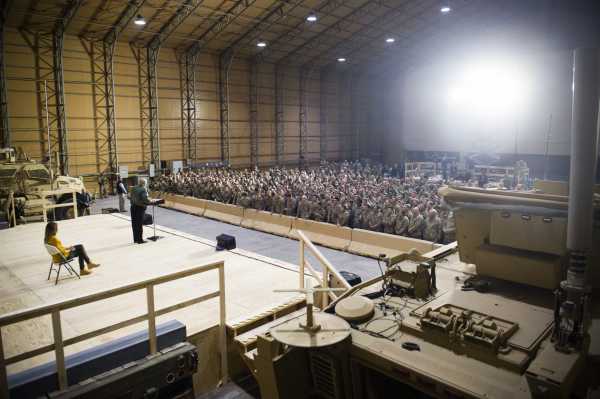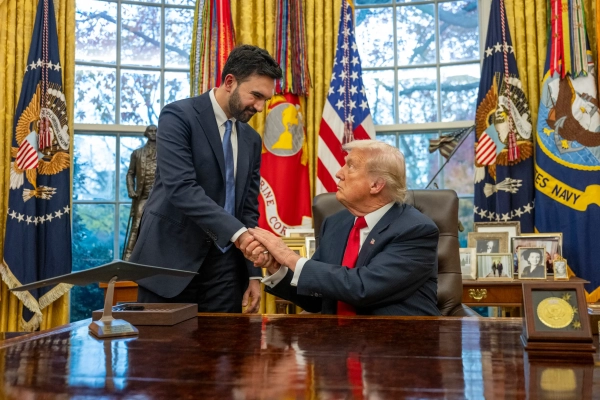
After a weekend of issuing threats to Iran, President Donald Trump said he would impose sanctions on Iraq if it decided to expel US troops.
Iraq’s parliament voted on a resolution about foreign troop presence in the country Sunday. The expulsion resolution was approved on a partisan vote — more than 150 generally pro-US lawmakers did not attend the session — but it is nonbinding, and the advancement of the resolution into actual policy faces a number of hurdles, including the transitional nature of Iraq’s government, the pro-US lawmakers, and questions of public support for the plan.
Nevertheless, Trump lashed out at Iraqi lawmakers Sunday on Air Force One, telling journalists, “If they do ask us to leave, if we don’t do it in a very friendly basis. We will charge them sanctions like they’ve never seen before ever. It’ll make Iranian sanctions look somewhat tame.”
Iran faces crippling US-imposed sanctions after Trump withdrew from an international nuclear deal that, among other things, targets the country’s oil sector as well as its ability to trade and acquire currency. Those sanctions have had a devastating effect on Iran, with its currency halving in value, food costs rising by more than 100 percent in some cases, and its economy shrinking as unemployment rises. Frustration with how the Iranian government has handled the situation — particularly in how it rolled out fuel subsidy austerity measures — led to mass protests in late 2019.

It is difficult to imagine sanctions becoming worse; similar sanctions on Iraq would exacerbate an already difficult situation in a country facing high unemployment and a government struggling to consistently deliver basic services — not to mention one that still needs assistance fighting the threat of ISIS.
Trump did not address those concerns in his threat, instead focusing on the cost of building and operating military installations in the country.
“We have a very extraordinarily expensive air base that’s there,” he said. “It cost billions of dollars to build. Long before my time. We’re not leaving unless they pay us back for it.”
He did not specify which air base he had in mind, but could have been referring to the al-Asad base, which has hosted both Trump and Vice President Mike Pence. He has also mentioned the base’s cost before, saying in February, “We spent a fortune on building this incredible base. We might as well keep it.”
The US did not build al-Asad, but has spent a significant amount both overhauling and operating it since the beginning of the Iraq War.

Despite this rhetoric, Trump also noted that he still wants US troops to begin leaving Iraq, saying, “I told you, Iraq, was the worst decision, going into the Middle East was the worst decision ever made in the history of our country … But we went in and we’re there and we’re pulling out, pulling out of a lot of different areas.”
It isn’t clear that Iraq actually will expel US troops, making the future of the sanctions uncertain. If troops are expelled, it also isn’t clear how successful sanctions would be in altering Iraqi policy, particularly given the limited success US sanctions have had in other cases.
The president has relied heavily on sanctions in executing his foreign policy, but it isn’t clear that they have influenced behavior. Experts were skeptical about the usefulness of the administration’s sanctions on Venezuela as soon as they were imposed, and the situation there now does not align anymore with US goals than it did when sanctions were put in place last August.
Similarly, sanctions on North Korea, Russia, and even Iran have not altered behavior in the manner the US has hoped; in fact, they have resulted in countries developing ways to circumvent the US financial system, such as Russia and Turkey’s agreement to use their local currencies in their mutual interactions, and the EU’s efforts to develop an alternative to the SWIFT system. Should sanctions come down on Iraq, they could push the country to take similar actions — even further embracing Iran.
Germany’s Foreign Minister Heiko Maas has said sanctions on Iraq would be “not very helpful,” but Trump has always been one to take his own counsel when it comes to foreign policy.
Sourse: vox.com






